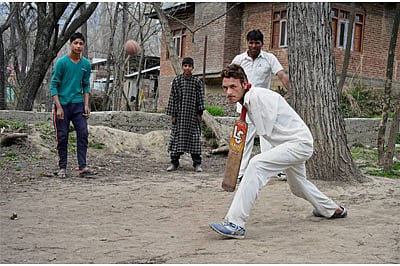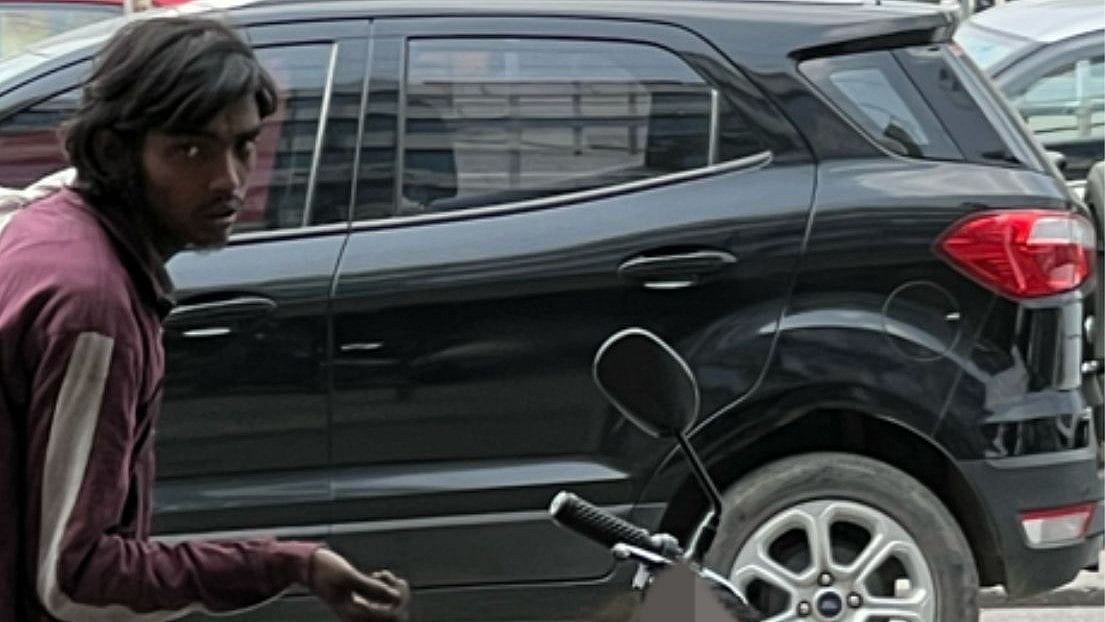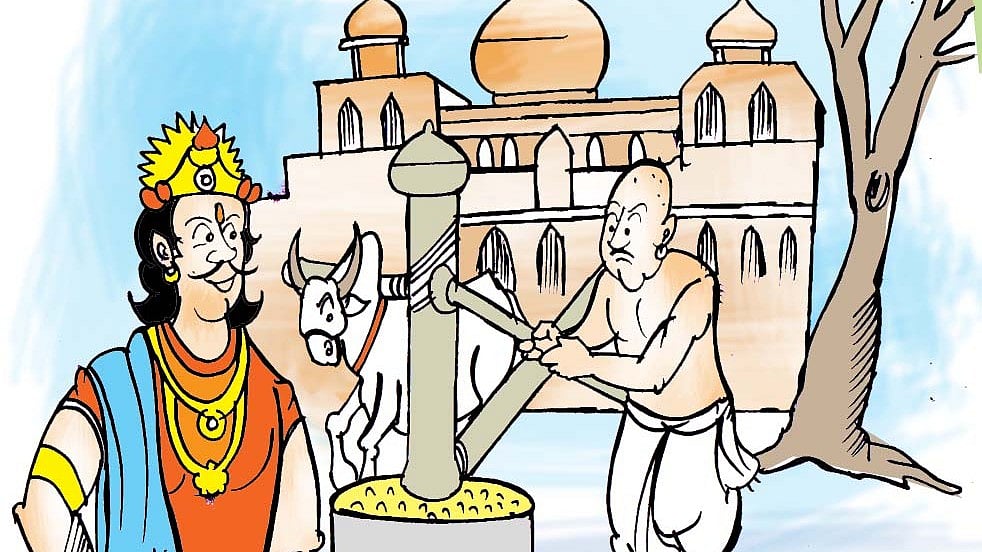For Simranjeet Kaur residing in Kampel village in Indore district, Mumbai has always been a city of dreams, perfect in perspective. Similarly, for Akash Singh residing in Indore, moving to world’s wealthiest city New York was a step towards living the ‘perfect dream life’.
The calling for Indore, Mumbai or New York took students, professionals and labourers far away from their native villages, but coronavirus pandemic has given them a glimpse of truth.
The cities are attractive with better work opportunities, but life and health still lie in simplistic and minimalistic life in villages. Youngsters, professionals and people from all the cadre, who moved into urban areas seeking their dream life have been moving back to villages.
Many like Simranjeet and Akash are recalling the wisdom of their grandparents, who preferred sitting in their farms instead of coffee shops explaining to them how nature heals our body and soul.
Urban areas are much more affected by coronavirus infection, the reasons start from better immunity in people living in villages to better forest cover still seen in rural areas.
The reasons often seem endless, but corona has definitely warned us that forgetting our roots and closing the door on simple rural lifestyle can make us weaker and more prone to diseases.
How is rural population better equipped to fight coronavirus than urban population? Starting from a better lifestyle, immunity and exposure to better forest cover and positivity, following are some latest researches and studies decoding the reasons to stay connected with the rural life:
Better recovery rates, green cover support
In a recent study conducted by Forest department, it was clear that areas with better green cover have fewer cases of coronavirus probably due to better immunity of people residing in such areas. The same was noted by Health department citing that people living in rural areas are less prone to catching coronavirus infection.
“It has been seen that the number of people affected from rural areas are much less as compared to urban population,” Dr Pravin Jadia, Chief Medical Health Officer (CMHO) said.
The cases in urban areas have also been seen to be more critical and severe as compared to rural area cases.
Among the first people, who recovered from coronavirus infection in Indore, most were from rural areas. One such family that was among the first few recovered corona patients was Sisodiya family.
The family was a native of Parda Solanki village in Rajasthan. Among the recovered, 33-year-old plant manager Karan Singh Sisodiya said, “We generally keep going back to our village and even in Indore, we live in the rural area near the industry.”
He explained that fighting any symptoms of the virus was not a major challenge for the entire family.
“For us, it was difficult for a day or two, then it was just like having a common cold and we continued our home remedy treatment and recovered rather quickly,” Sisodiya said.
No more immunity boost visits to native villages
With hectic life in cities, it is rare for people to go back to their villages every couple of months. In fact, the trend has changed so much that people visit their village only during weddings or necessary engagements.
“Children and even most of us don’t feel comfortable in going back to villages, as they cannot enjoy network access and bungalow comforts like air conditioning, easy access to fast food, coffee dates, long drives, etc,” marketing head at an MNC Jitendra Saluja said.
These frequent visits to native villages normally acted as an immunity boost for people.
“People living in urban areas are not exposed to pathogens and hence, their body does not form antibodies, which ultimately strengthen our immune system,” endocrinologist Dr Abhyudaya Verma said.
In fact, National Health Service, England, had made it mandatory for people in England to send their kids in park for 2 to 5 hours every day to boost their immunity. “Many other diseases like diabetes, hypertension, allergies, asthma, etc, are seen more commonly in urban population that does not spend time in rural natural environment,” Verma said.
Higher pollution level: Lower immunity
Urban population is mostly living in concrete jungles with barely enough green cover to purify the air. This was cited in the map released by forest department as well, showing that places like Indore, Bhopal, Jabalpur and other cities have lesser green cover.
Further, urban areas have industries and overcrowding, due to which water and even land pollution levels are much higher than rural areas.
"Coronavirus has re-instated that pollution level in Indore is much higher than often shown in figures, and studies around the world that coronavirus has higher impact in polluted areas,” social activist Kishore Kodwani said.
Further, a study on air pollution and the case fatality of Severe Acute Respiratory Syndrome (SARS) outbreak in 2003 demonstrated that SARS patients from regions with moderate air pollution had an 84% increased risk of dying from the disease compared to those from regions with low air pollution.
Higher stress levels, lower willpower in urban culture
Living in cities, people are more stressed and less active. Instead of relaxing and venting out their troubles in the traditional chaupals like in rural areas, people generally built up their emotional and mental stress.
This stress further exaggerates and affects a person’s over psychology.
“A person living in rural area with family is physically, emotionally and mentally stronger than a person living in urban areas. When we are fighting a disease, our psychological and physical power, both need to be sync,” Dr Smita Agrawal, psychiatrist, said.
A recent case of a 78-year-old man admitted to a government hospital in Indore on suspicion of coronavirus infection committed suicide by jumping from fourth floor was a clear example of emotional and mental fragile nature of urban people.
Sedentary life impairs immune system
Living in urban areas, people mostly live a sedentary life, using vehicles to commute for short distances. Most children nowadays spend time indoors studying and playing online.
“Children are busy in their studies and further, we don’t feel safe in sending our children out during the day due to rising number of kidnapping cases,” homemaker Rakhi Jaisingh said.
Working out is a part of the natural day-to-day life of every person living in a village. For travelling and even visiting friends, one has to walk for kilometres. Other than basic active life, children start working and playing in farms since their nascent years giving them enough exposure to harsh weather conditions and building their physical strength.
“Social distancing is also a normal practise in villages. There is no crowding, so other than work on farms, our live normally also requires us to travel and work in a way that we use all our muscles every day,” Govind Maheshwari, a farmer, said.
A sedentary lifestyle can not only affect our mood and physical health. It impairs our body’s immune system as well. “Inactivity lead to weak immune system, inflammation, and other chronic diseases,” Dr Arun Agrawal, oncologist, said.
Over time, too much sitting and avoiding exercise can affect your body’s ability to fight infection, according to a study in the American Journal of Preventive Medicine.
No junk food, better immunity from birth
People living in urban areas are accustomed to having processed and junk food, which weakens our immune system by killing the good bacteria in the system.
“People living in rural areas are more active and less exposed to junk and processed food, which makes them much stronger,” Padma Shri Janak McGilligan Palta said.
Not just in adults, but because of the food we eat and the way we live, it affects babies as well. Children born in rural areas are less prone to diseases and infections including coronavirus due to their better immunity.
“Women in urban areas have more complicated deliveries and often need assistance, which is another sign for lower immunity. Babies born of women living in urban cities tend to have more complications and issues as compared to rural area,” Dr Usha Shrivastava, gynaecologist, said.
She added that having lesser processed and junk food makes the mother and baby stronger.









.jpg)
